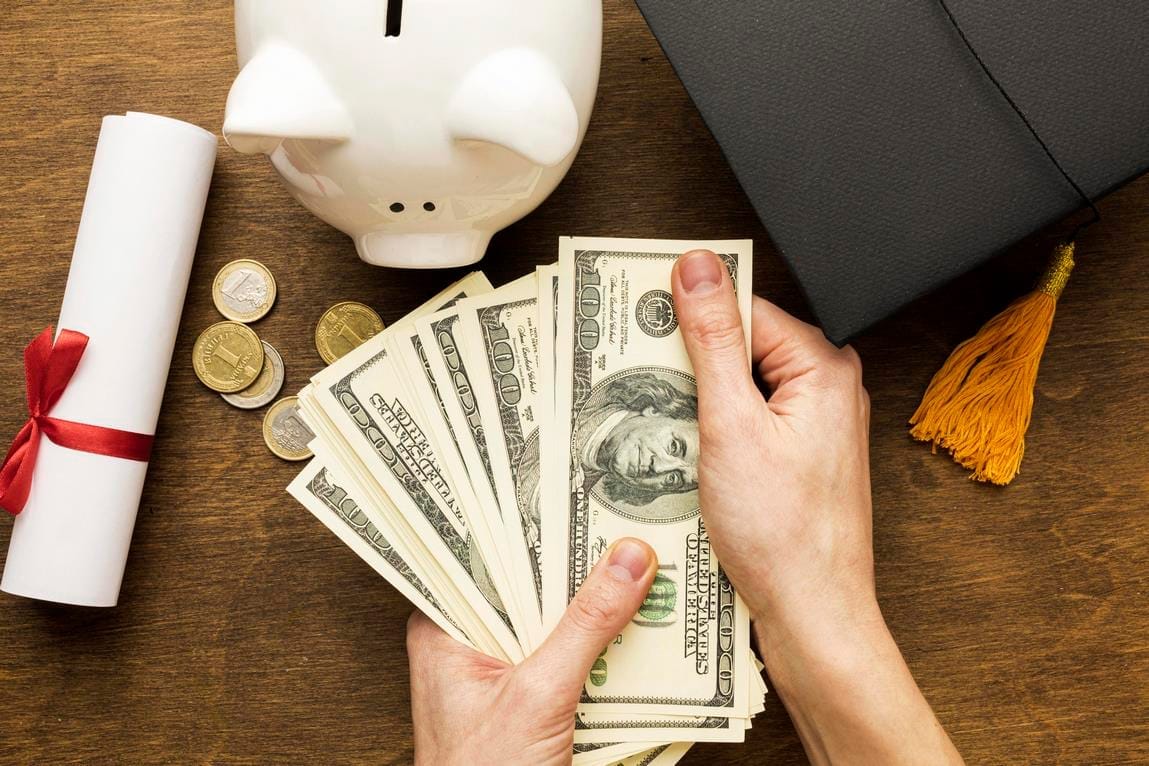Why Debt Feels Like a Monster Under Your Bed
Debt often feels like a lurking monster under your bed, ready to pounce and disrupt your peace of mind. This perception of debt can lead to anxiety and financial stress, making it seem like an insurmountable challenge. Understanding that debt is more of a manageable issue than a terrifying beast is the first step toward overcoming it.
The Bright Side: Paying Off Debt Is Totally Possible!
Despite how daunting debt might appear, paying it off is entirely achievable. With the right strategies and a positive mindset, you can tackle debt effectively and reclaim your financial freedom. Embrace the process as an opportunity for growth and transformation.

Understanding Your Debt: A Peek at Your Financial Skeleton
Breaking Down Your Debt: The Good, the Bad, and the Ugly
To effectively manage debt, you need to break it down into categories: good, bad, and ugly. Understanding each type’s characteristics and implications helps you devise a tailored repayment strategy. This clear categorization is crucial for effective debt management.
Interest Rates and Why They’re Not Just Numbers
Interest rates are more than just numbers on your loan statements; they are key factors in determining the total cost of your debt. High-interest rates can significantly increase the amount you owe over time, making it essential to understand their impact on your financial situation.
Types of Loans: Student Loans, Credit Cards, and More!
Debt comes in various forms, including student loans, credit cards, and personal loans. Each type has distinct features and repayment terms. Knowing the differences between these loans helps you manage and prioritize them effectively.

Creating a Debt Repayment Plan: Your Financial GPS
Setting Realistic Goals: How to Avoid Debt-Induced Panic Attacks
Setting achievable goals is crucial for maintaining motivation and avoiding overwhelming stress. Break down your repayment goals into manageable steps to make the process less daunting and more attainable.
Prioritizing Your Debts: The Debt Domino Effect
Prioritizing debts involves focusing on those with the highest interest rates or the most immediate deadlines. This method, known as the Debt Domino Effect, helps reduce your overall debt more efficiently and effectively.
The Snowball Method: Small Wins, Big Impact
The Snowball Method involves paying off your smallest debts first to build momentum. This approach provides psychological benefits and can help you tackle larger debts with greater confidence.
The Avalanche Method: Why Bigger Really Is Better
The Avalanche Method focuses on paying off debts with the highest interest rates first. This strategy can save you more money in the long run by reducing the total amount of interest you pay.
Budgeting Basics: The Art of Making Every Penny Count
Crafting a Budget That Actually Works: No, You Don’t Need to Live on Ramen
Creating a budget doesn’t mean living in deprivation. Design a budget that balances your financial goals with your lifestyle needs, allowing you to manage expenses without sacrificing your quality of life.
Identifying and Cutting Unnecessary Expenses: Goodbye, Latte Habit!
Identify and eliminate unnecessary expenses to free up money for debt repayment. Small changes, like cutting out daily lattes or unused subscriptions, can significantly impact your financial situation.
Building an Emergency Fund: Because Life Happens
An emergency fund acts as a financial safety net to cover unexpected expenses. Aim to save three to six months’ worth of living expenses to avoid disrupting your debt repayment plan when emergencies arise.

Boosting Your Income: More Money, Less Debt
Side Hustles and Gigs: Turning Your Skills into Cash
Consider side hustles or gig work to increase your income. Whether it’s freelance work or part-time jobs, additional income streams can accelerate your debt repayment and provide financial flexibility.
Asking for a Raise: How to Do It Without Looking Like a Greedy Goblin
Requesting a raise can enhance your ability to pay off debt. Approach the conversation professionally, highlighting your contributions and value to the company, to increase your chances of a successful negotiation.
Selling Unwanted Items: Declutter Your Home, Fatten Your Wallet
Selling unwanted items can generate extra cash for debt repayment. From old electronics to furniture, decluttering your home can provide both financial and physical benefits.

Managing Your Loans: The Secret Life of Your Debt
Refinancing Loans: To Refinance or Not to Refinance?
Refinancing can lower your interest rates and monthly payments by replacing your existing loan with a new one. Assess the pros and cons of refinancing to determine if it’s the right option for your financial situation.
Consolidating Debt: The Simplest Way to Deal with Multiple Payments
Debt consolidation combines multiple debts into a single loan, simplifying payments and potentially reducing interest rates. This strategy can make managing debt more straightforward and less overwhelming.
Negotiating with Creditors: Yes, You Can Ask for a Break!
Negotiate with creditors to improve your loan terms. Many creditors are willing to work with you to create more manageable payment plans or reduce interest rates, which can help alleviate financial pressure.
Tackling Student Loans: Your Degree Doesn’t Have to Mean Debt Forever
Understanding Federal vs. Private Student Loans: What’s the Difference?
Federal and private student loans differ in terms of interest rates, repayment options, and benefits. Understanding these differences helps you manage and repay your student loans more effectively.
Income-Driven Repayment Plans: Tailoring Payments to Your Earnings
Income-driven repayment plans adjust your payments based on your income and family size, making them more manageable. Explore these options to find a plan that fits your financial situation.
Loan Forgiveness Programs: How to Navigate the Fine Print
Loan forgiveness programs offer debt relief for eligible borrowers. Research available programs and understand their requirements to maximize your potential benefits.
Staying Motivated: Keeping the Debt Monster at Bay
Celebrating Small Victories: Rewarding Yourself Without Going Overboard
Celebrate your progress by acknowledging small victories. Reward yourself in ways that align with your budget to maintain motivation and continue making progress toward your financial goals.
Tracking Progress: How to See the Light at the End of the Tunnel
Regularly track your debt repayment progress to stay motivated. Monitoring your achievements and visualizing your progress can help you stay focused and encouraged throughout your journey.
Seeking Support: Friends, Family, and Financial Advisors
Seek support from friends, family, or financial advisors to assist with your debt repayment journey. They can offer valuable advice, encouragement, and accountability, making the process less isolating.
Avoiding Future Debt: Lessons Learned
Building Good Credit: How to Use Your Financial Superpowers Wisely
Building and maintaining good credit is essential for long-term financial health. Use your financial knowledge to manage credit wisely and avoid falling back into debt.
Planning for Major Expenses: Saving Up Instead of Borrowing
Plan and save for major expenses rather than relying on credit. Establish a savings plan to cover anticipated costs and prevent future debt accumulation.
Financial Literacy: Keeping the Debt Monster Out for Good
Invest in financial literacy to manage your money effectively and avoid future debt. Educate yourself on financial principles to maintain control over your financial destiny.
BOTTOM LINE
Reflecting on Your Journey: From Debt Despair to Financial Freedom
Reflect on your journey from debt despair to financial freedom. Celebrate the progress you’ve made and the lessons learned along the way.
Your Next Steps: How to Keep the Momentum Going
Continue to set new financial goals and practice sound money management habits. Keeping the momentum going will help you maintain financial stability and achieve ongoing success.
Additional Resources: Because Knowledge is Power
Recommended Books and Websites for Financial Education
Explore books and websites that offer valuable financial insights. Resources like “The Total Money Makeover” by Dave Ramsey and websites like NerdWallet and The Balance provide useful information and tips for managing your finances.
Helpful Tools and Apps for Debt Management
Utilize tools and apps designed for debt management. Apps such as Mint, YNAB (You Need a Budget), and Debt Payoff Planner can assist you in tracking expenses, creating budgets, and managing debt repayment.
Contact Information for Financial Counseling Services
Consider professional guidance from financial counseling services. Organizations like the National Foundation for Credit Counseling (NFCC) offer resources and support for managing debt and improving your financial situation.
Frequently Asked Questions (FAQs)
Is it Better to Pay Off Debt or?
Deciding whether to focus on paying off debt or saving for a larger down payment depends on your financial situation. Generally, it’s advisable to address high-interest debt first, as it accumulates quickly and can hinder your financial stability. Once high-interest debts are under control, you can then shift focus to saving for a down payment.
What’s Worse, Credit Card Debt or Loan Debt?
Credit card debt is typically worse than loan debt due to its high interest rates and revolving nature. Credit card balances can grow rapidly if not managed carefully, leading to significant financial strain. Loan debt, while potentially large, often has fixed terms and lower interest rates, making it somewhat easier to manage and pay off over time.
Is it Better to Pay Off Debt or Have a Bigger Down Payment?
It is usually better to pay off high-interest debt before saving for a larger down payment. Paying down debt reduces financial strain and interest payments, which can improve your overall financial health and credit score. Once your debt is manageable, you can focus on saving for a down payment to secure better loan terms and avoid additional financial pressure.
What Loan Should You Pay Off First?
Focus on paying off loans with the highest interest rates first. This approach, known as the Avalanche Method, minimizes the amount of interest you pay over time and accelerates your debt repayment process. For those seeking a motivational boost, the Snowball Method—starting with the smallest debts—can also be effective, but prioritizing high-interest loans is generally more cost-effective.
How to Pay Off Student Loans When You Are Broke?
When you’re broke, paying off student loans requires a strategic approach. Start by exploring income-driven repayment plans that adjust your payments based on your income. Additionally, consider consolidating or refinancing your loans to lower interest rates. Seek out loan forgiveness programs if eligible and make use of any available deferment or forbearance options to ease financial pressure while working on improving your income situation.
People Also Ask
Is It Better to Pay Off a Student Loan or Make Payments?
The decision to pay off a student loan versus making regular payments depends on factors like your interest rate, financial stability, and long-term financial goals. Paying off the loan can save on interest over time, but sticking to regular payments may offer better cash flow for other financial priorities.
Is It Better to Invest Money or Pay Off Student Loans?
If the return on your investments is likely to exceed your loan interest rate, investing may yield higher gains over time. However, if your loan interest rate is high, paying off the loan can be a safer financial move.
Is It Better to Pay Off Debt or?
Generally, paying off high-interest debt first is recommended. However, depending on the debt type, building emergency savings or investing may also be wise before aggressively paying off debt.
Is It Better to Pay Off Debt or Have a Bigger Down Payment?
A larger down payment can reduce mortgage costs and interest over time, but paying off high-interest debt first can help you secure a better financial footing. Evaluate your debt interest rates against potential mortgage savings.
Is It Good to Pay Off Loans Early?
Paying off loans early reduces the total interest paid over time and can free up income for other goals. However, be sure there are no prepayment penalties and that early payoff aligns with your cash flow needs.
How to Aggressively Pay Off Student Loans?
Aggressive repayment strategies include making extra payments, refinancing for lower interest, and allocating windfalls or bonuses directly to the loan principal. You might also consider budgeting with a high-priority focus on your loans.
How Can I Pay Off My Student Loans in 5 Years?
To pay off student loans in 5 years, calculate the monthly payment needed to reach this goal and adjust your budget accordingly. Extra payments, side income, and refinancing options can help reduce the balance faster.
At What Salary Should I Pay Off a Student Loan in the UK?
In the UK, student loan repayments are income-driven, with payments starting once you earn over a certain threshold. While there is no fixed salary for paying it off early, a higher income can accelerate repayment if that’s financially comfortable for you.
Do Student Loans Help or Hurt Credit?
Student loans can help build credit if paid on time, showing responsible credit management. However, missed payments or high loan balances relative to other credit can negatively affect your credit score.
Can You Pay Off Student Loans Early Without Penalty?
Yes, most student loans do not have prepayment penalties, allowing you to pay off your loans early without extra fees. Always confirm with your loan servicer to avoid unexpected costs.
Is It Smarter to Pay Off Student Loans?
Paying off student loans early can save money on interest and reduce financial stress, but it’s essential to balance this goal with other financial priorities, such as retirement savings or emergency funds.
Is It Better to Pay Off Student Loan in Lump Sum?
Paying off a student loan in a lump sum can save significant interest. If you have the funds, a lump sum payment can be a smart move, but ensure it won’t strain your finances or reduce your emergency savings.
Is It Better to Pay Off Debt or Save for Retirement?
Ideally, you should aim to both save for retirement and pay down high-interest debt. If forced to choose, high-interest debt repayment often takes priority, as it erodes financial growth faster than most retirement investments grow.
Should I Pay Off My Student Loan or Make Payments?
If your student loan interest rate is high, paying it off may be more cost-effective than making minimum payments. However, low-interest loans may be better managed with regular payments while investing or saving in parallel.
How Much Money Do I Need to Retire?
Retirement needs vary widely but typically range from 70-80% of your pre-retirement income per year, multiplied by expected retirement years. Personal goals and lifestyle factors also play key roles in determining your retirement target.
What Is Considered High-Interest Debt?
High-interest debt generally refers to debt with an interest rate over 7-8%, such as credit cards or personal loans. Paying off high-interest debt is often a financial priority because it grows faster than most savings or investment returns.
Is It Best to Consolidate Student Loans?
Consolidating student loans can simplify payments and potentially lower interest rates if refinanced with private lenders. However, federal loans may lose benefits such as income-driven repayment plans if consolidated privately.
What Is the 50/30/20 Rule?
The 50/30/20 rule is a budgeting strategy allocating 50% of income to needs, 30% to wants, and 20% to savings or debt repayment. This guideline helps maintain a balanced financial lifestyle while focusing on key financial goals.
Is It Better to Pay Off or Invest in Debt?
Investing in debt means paying down high-interest loans for financial gain, as it “earns” you the avoided interest cost. Prioritizing debt payoff versus other investments depends on potential investment returns compared to debt interest rates.
Is It Better to Pay Off Debt or Let It Fall Off?
Generally, it’s better to pay off debt rather than waiting for it to fall off your credit report, as unpaid debt can harm credit and may still be pursued by collectors. Paid-off debts improve creditworthiness.
Why Does Paying Off Debt Feel Good?
Paying off debt can provide financial relief, reduce stress, and give a sense of accomplishment. Becoming debt-free also frees up money for other priorities and helps build a strong financial foundation.
Which Debt to Pay First?
Typically, high-interest debt, such as credit card debt, should be paid off first due to its costly interest rates. The debt avalanche method (focusing on the highest interest rate) or the debt snowball method (starting with the smallest balance) are both popular approaches.









